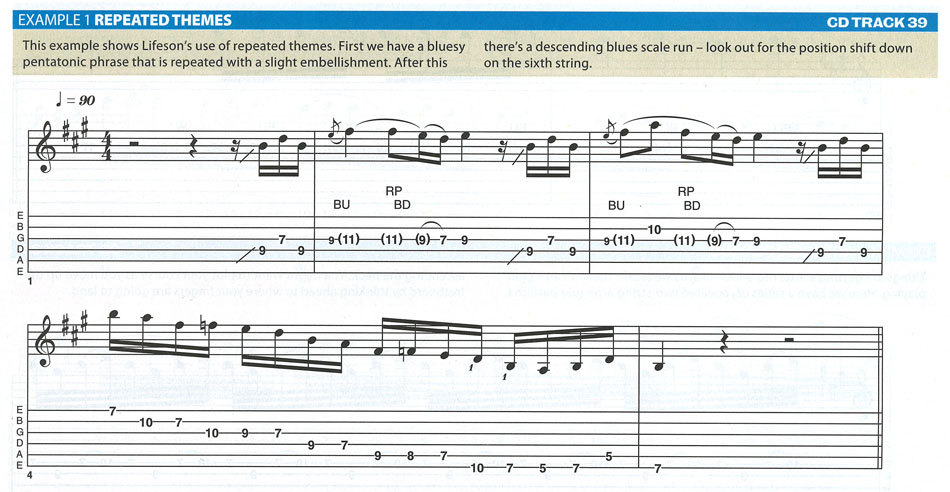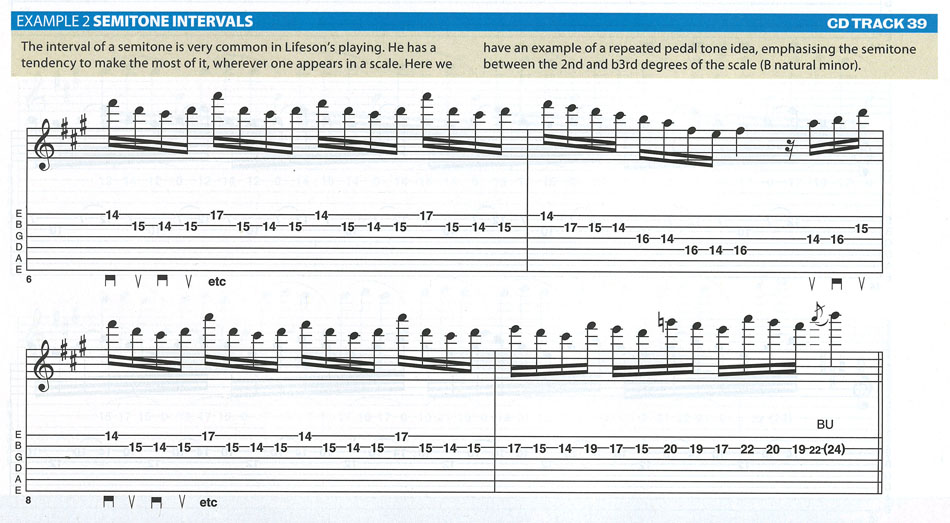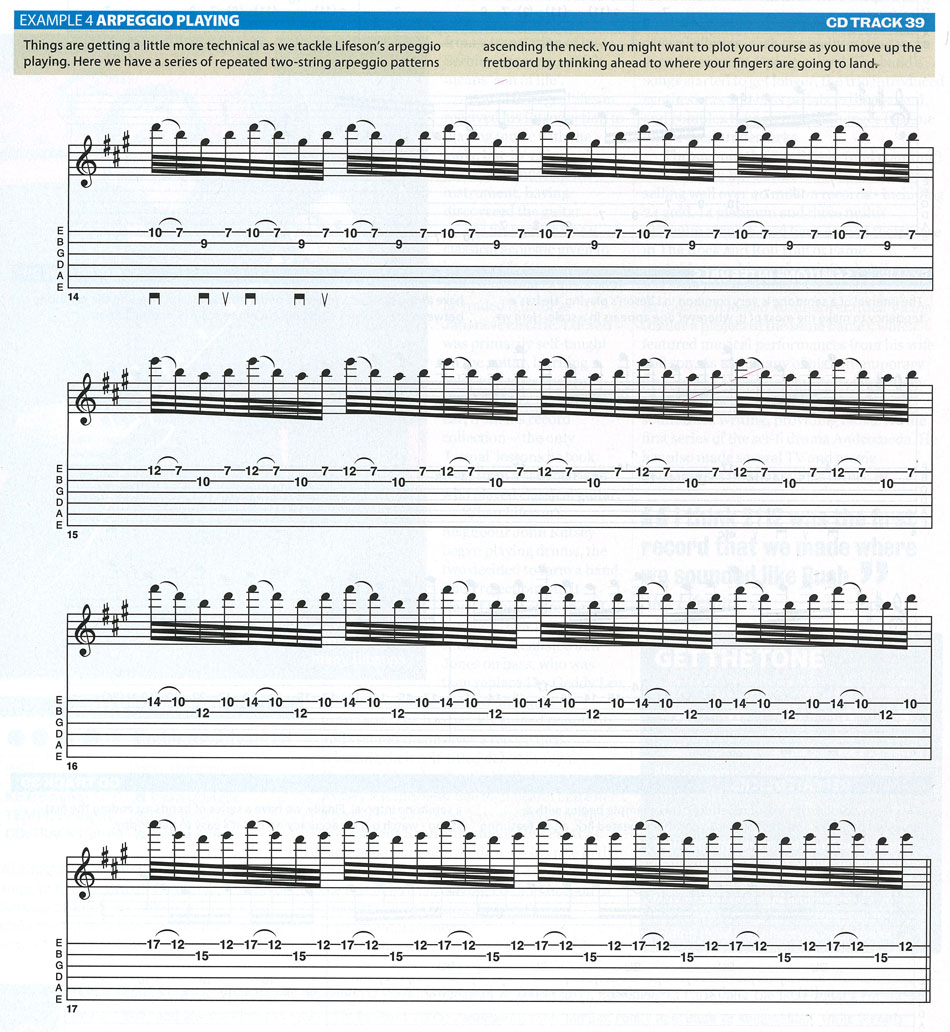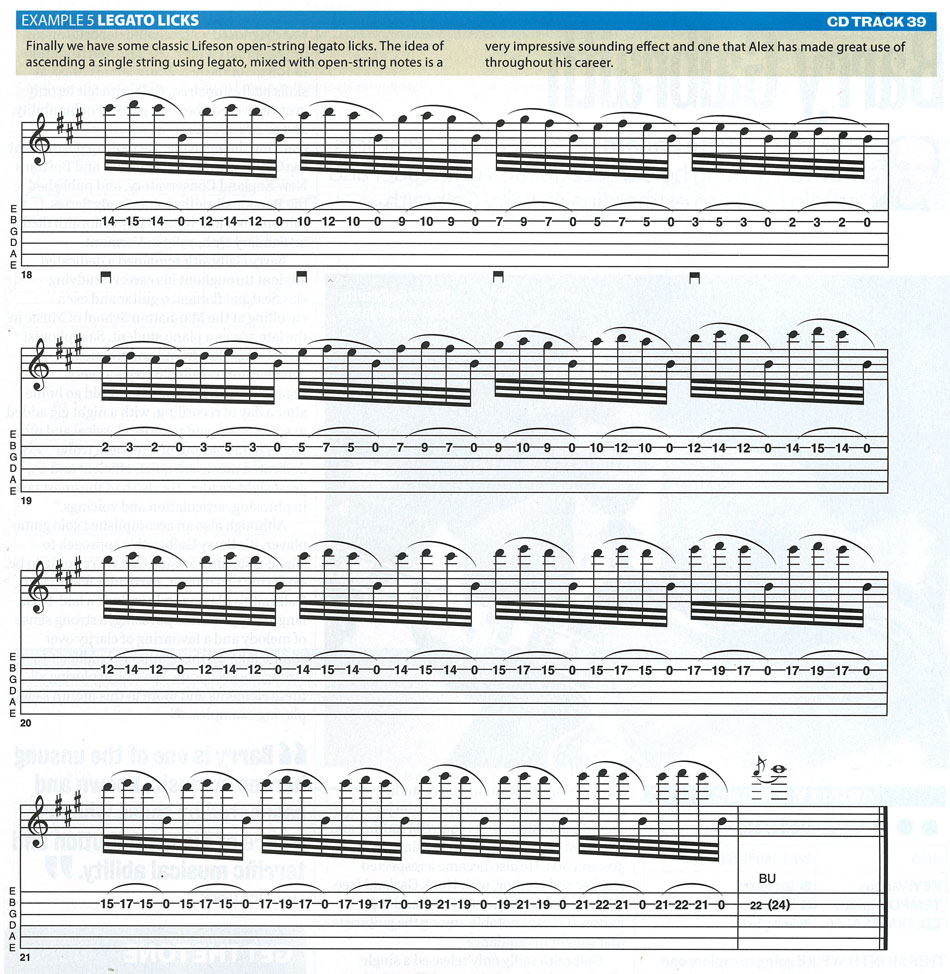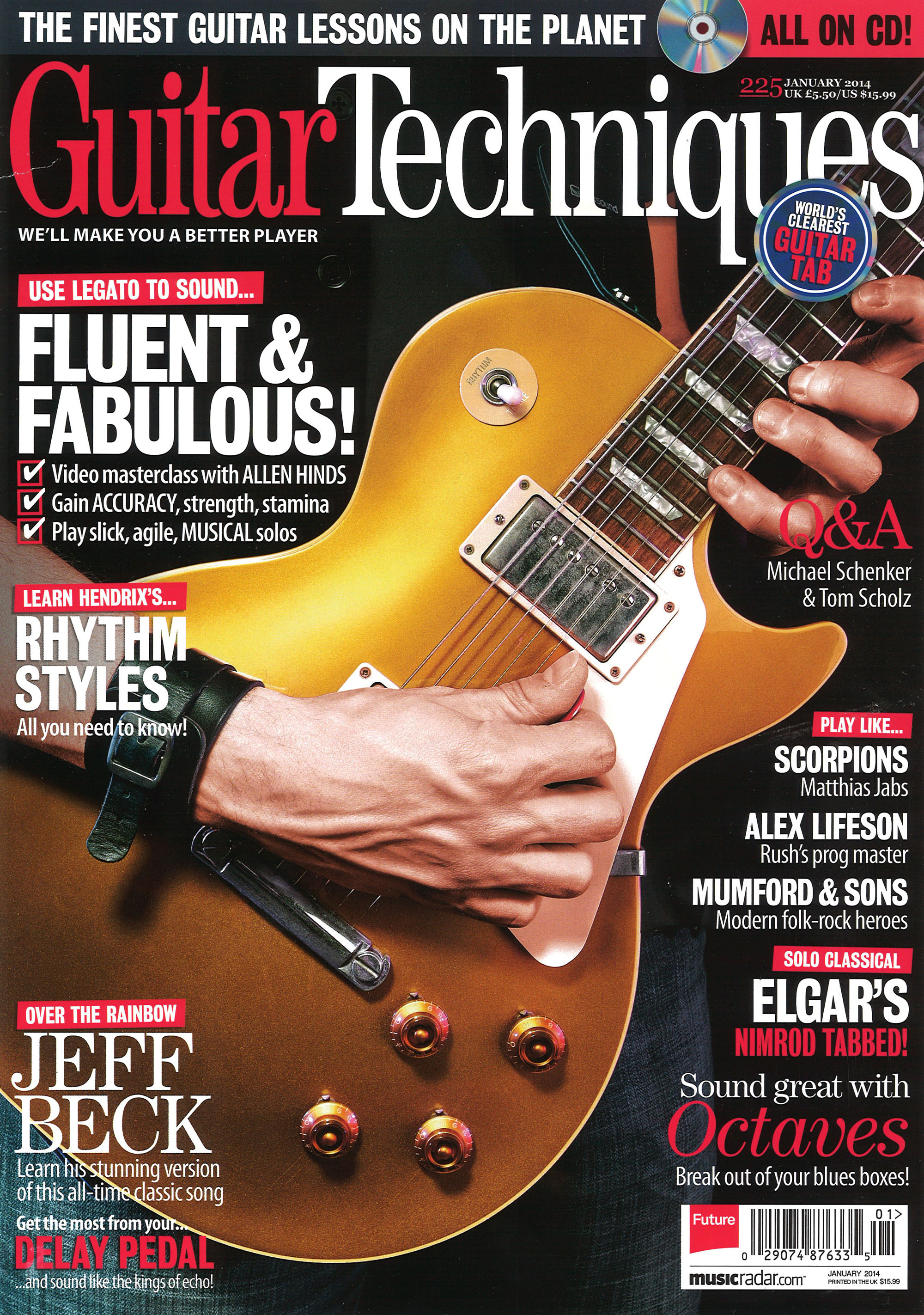
|
RŒsh's Prog Master Guitar Techniques Magazine January 2014 by Paul Bielatowicz |
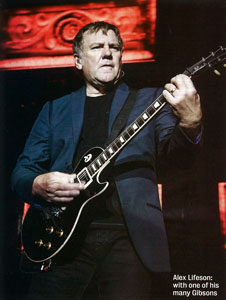
Click Any Image to Enlarge
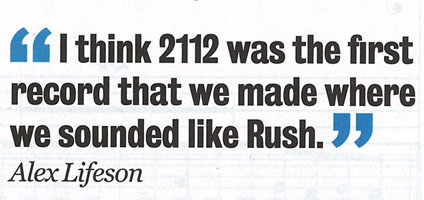
ALEKSANDAR ZIVOJINOVIC WAS born in 1953, in Fernie, British Columbia, the son of Serbian immigrants. When he was a small child the family moved to Toronto, Canada, where he acquired his Americanised name from a translation of his Serbian surname, which means 'son of life'.
At an early age, Lifeson received his introduction to playing music with the viola, but by 12 he had already abandoned the instrument, having discovered the guitar.
His first guitar was a classical acoustic given to him as a Christmas present from his father. A little later he traded it in for a Japanese electric. Lifeson was primarily self-taught on the guitar, learning solos of heroes such as Clapton, Page and Beck by ear, from his record collection ? the only 'formal' lessons he took were from a school friend who played classical guitar.
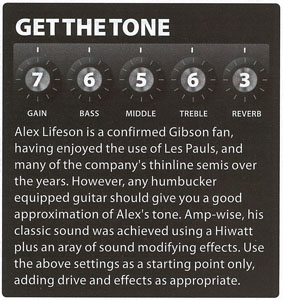
When Lifeson's neighbour John Rutsey began playing drums, the two decided to form a band, The Projection, but wasn't long before they'd changed their name to Rush. Rush enlisted Jeff Jones on bass, who was then replaced by Geddy Lee within a couple of weeks of the band's formation. The trio quickly gained popularity and secured themselves a record deal, releasing their self-titled debut in 1974. However, shortly after their album came out, Rutsey left the band due to ill health and after a process of auditions, two weeks before their first US tour Rush announced Neil Peart as their new drummer. Aside from his role in the trio's percussion section, Peart also took on the role of lyricist, leaving Lee and Lifeson to concentrate on writing the band's instrumental elements.
Over the next few years Rush released several albums, each gradually getting more experimental and 'progressive'. The band's songs started to get longer, the trio introduced synthesisers and bass pedals to their sound, and complex time signature changes became one of their trademarks.
Throughout their 45th year (and counting) career, Rush have achieved massive success, selling well over 40 million records - including 24 gold, 14 platinum and three multi-platinum albums, and have earned their place in The Rock and Roll Hall of Fame.
Aside from his work with Rush, Lifeson has been involved in numerous side projects. 1111996 he released an album entitled Victor (under a project of the same name), which featured musical performances from his wife and son. As with many of his contemporary prog gods, Lifeson has guested on too many albums to mention. He's also dabbled in soundtrack writing, providing music for the first series of the sci-fi drama Andromeda. He has also made several TV and movie appearances throughout his career.
TRACK RECORD Classic Rush albums include 2112 (1976), A Farewell To Kings (1977), Hemispheres (1978) and the best-sellers Permanent Waves (1980) and Moving Pictures (1981). Fly By Night (1975) represents their earlier, rocky approach to songmaking, while Signals (1982) is a great example of their 'synth' phase. Snakes & Arrows (2007) and Clockwork Angels (2012) see a return to rock form.
MP3 Files
Track 38 - Intro
Track 39 - Example
Track 40 - Backing Track
